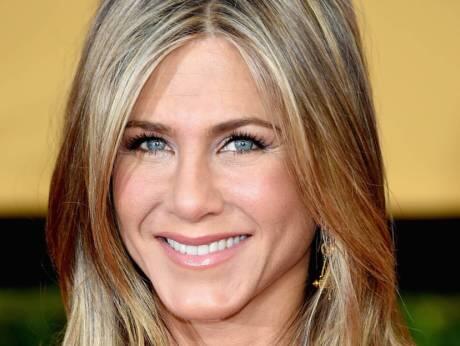When one of Hollywood’s most objectified women talks about tabloid culture, people listen. But while actresses are cheering Jennifer Aniston’s recent essay connecting the media’s obsession with her looks to the overall objectification of women, most are resigned that reality will be slow to catch up with the conversation.
“Entrenched ways take a while to change,” said Marisa Tomei, “but having the conversations and opening it up, objecting to it or seeing different points of view about it is really helpful.”
“I applaud Jennifer,” said actress Allison Janney. “I hate that she had to do it, but I think she just had enough.”
Aniston wrote in her Huffington Post essay earlier this month that constant tabloid speculation over whether she’s pregnant contributes to sexist cultural standards that equate a woman’s worth with her appearance and maternal status.
“We use celebrity ‘news’ to perpetuate this dehumanising view of females,” Aniston wrote.
“More scrutiny has always been levelled at women, no matter the context,” said Ella Ceron, digital entertainment editor for Teen Voguemagazine. “Women are held to different standards than men, and are taught from a young age to value their looks and their grooming and their weight very seriously.”
While tabloids have long seen women through an appearance-focused lens, other recent press coverage unduly aimed at actresses’ looks has inspired vocal criticism online. A June article in Variety in which its film critic maligns Renee Zellweger’s face based on her appearance in a trailer for Bridget Jones’s Baby inspired an impassioned response from actress Rose McGowan, who called the piece “vile, damaging, stupid and cruel.”
Variety has declined to comment.
Zellweger’s face was the subject of such widespread scrutiny and speculation in 2014 that the actress released a statement suggesting that she looks different because she had gotten older during her time away from the entertainment industry.
Vanity Fair readers from Los Angeles to Australia blasted the magazine’s July cover story that opens by describing Suicide Squadstar Margot Robbie as “sexy and composed even while naked.” Writer Roxane Gay and Portlandia creator Carrie Brownstein were among those decrying the article as sexist on social media. Vanity Fair did not respond to a request for comment.
“We’ve been subjected to this for years, and now with the influx of social media, we have spaces to discuss and vent our frustration,” Ceron said. “What’s more, people are finally listening to us.”
Other actresses have been speaking out against sexist beauty standards for years. Barbra Streisand says it’s “backward” for our culture to consider actresses in their 40s as somehow “too old”.
“It’s not a European way of looking at, like, movie stars who look like real people,” Streisand said. “They have flaws, you know.”
Jamie Lee Curtis recalled a magazine photo shoot more than 15 years ago where she insisted on being photographed before the hair and make-up wizards worked their magic.
“It was my way of making my statement back in the day,” Curtis said. “And now Jennifer’s written what she wrote … It’s an important conversation.”
Filmmaker and activist Jennifer Siebel Newsom, who studies gender representation in media, has been working to shift attention from actresses’ appearances to their accomplishments through the Representation Project’s #AskHerMore campaign. Created in 2014, the effort encourages red-carpet reporters to interview actresses about more than their outfits. Reese Witherspoon and Shonda Rhimes are supporters.
Change has to come from all genders and sides, Newsom said.
“It’s too much for one person to take on her own,” she said. “So while I applaud these individual actresses writing pieces and speaking out, we have to come together and say enough is enough.”
Being beautiful might be considered part of any celebrity’s job, male or female. So is it fair for an entertainer to use her image to promote her work on an album or magazine cover, then balk at media scrutiny of her appearance?
“The thing is, a man can be attractive without it being his entire selling point,” said Ceron of Teen Vogue.
Actress Abigail Breslin says consumers have a significant role to play. Tabloids may have influenced popular perceptions of women’s looks, but readers don’t have to remain complicit.
“It just takes people not buying it anymore — not buying magazines that are circling imperfections on the cover,” Breslin said. “It’s become culturally normal to be like, ‘Oh my God, look at this actress, she has bad calves.’ That’s not normal.”











